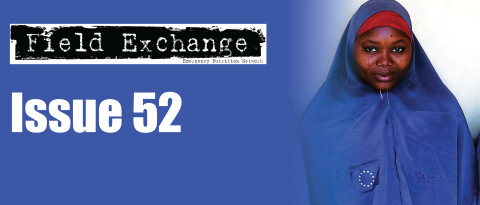Maximising the nutritional impact of humanitarian food assistance – ECHO Desk review
Summary of reviewi
In 2013, an ‘Evaluation of European Commission integrated approach of food security and nutrition in humanitarian context1; (Harver et al, 2013) highlighted key constraints of humanitarian food assistance (HFA) actions funded by DG ECHO in the consideration of nutritional needs of specific groups. A desk review was therefore commissioned from the Inspire Consortium 2 to map existing documents and tools relevant to maximising the nutrition component and outcomes of food assistance, evaluate their technical relevance and validity and to conduct a gap analysis.
Methods
The review considered resources relating to conditional and unconditional in-kind and cash/voucher transfers and resources relating to maximising the impact of programmes on nutritional status, including those of other sectoral interventions where appropriate. Resources were obtained from various stakeholders including UN agencies, ICRC and IFRC, NGOs, donors, academic bodies and think-tanks. Documents were evaluated and scored according to their coverage of a range of nutrition-sensitive elements. All emergency-related documents were evaluated for their reference to Sphere Standards or not. A variety of stakeholders also provided feedback on key constraints relating to achieving nutritional impact in HFA interventions. A detailed report has been produced in addition to a spreadsheet which outlines the coverage of the various nutrition-sensitive criteria by each resource reviewed. An inventory and short synopsis of each document reviewed has also been created.
Summary of key findings, conclusions and recommendations
In terms of coverage of nutrition-sensitive criteria selected for the review, the highest scoring documents were: USAID’s Multi-Sectoral Nutrition Strategy (2014); ACF’s Nutrition Security Policy (2014); Save the Children / UNHCR’s Infant and Young Child Feeding (IYCF) Friendly Framework (draft, 2015); ACF’s Maximising the Nutritional Impact of Multisectoral Interventions (2011); ACF’s Emerging Best Practice in Fresh Food Vouchers (2012); and FAO’s Social Protection and Nutrition (draft, 2015).
Key gaps identified in policy and strategy resources reviewed included: the limited number of documents referring to Sphere HFA Standards (2011); limited reference to monitoring/minimising potential negative impacts of HFA; low coverage of issues of women’s empowerment; limited reference to access to / coverage of interventions.
Key gaps identified in HFA guidance resources reviewed included: lack of reference to Sphere HFA Standards in cash transfer guidance; a lack of consensus on criteria to assess impact on nutritional status of emergency interventions and on how achievement of objectives should be measured. Other areas with limited coverage in guidance included: consideration of baseline/current IYCF practices; provision of nutritional supplements for specific groups, evaluation of outcomes relating to improved care practices and mortality, consideration of cost-effectiveness / efficiency of nutrition-sensitive interventions.
A very significant gap was noted in relation to guidance on nutrition and cash-transfer interventions in particular, including: lack of consideration of specific nutritional needs of vulnerable groups and a lack of guidance on protection / promotion of IYCF.
Stakeholder feedback highlighted the increasing ‘disconnect’ between nutrition and food security sectors and the decreasing dissemination, awareness and use of technical guidance and standards relating to nutrition in food assistance programming.
The review suggests the following recommendations to ECHO in particular, but by extension also pertinent to other donors and agencies:
- Identify key principles for nutrition in HFA programming and an associated checklist.
- Identify and adopt basic rules/standards relating to Maternal and Child Nutrition and HFA programming.
- Promote and facilitate increased engagement and participation of the nutrition sector in HFA programming, particularly cash-based programming.
References
1 Haver K, Harmer A, Taylor G, Khara Latimore T. (2013). Evaluation of European Commission integrated approach of food security and nutrition in humanitarian context 10 July 2013.
2 http://www.urd.org/INSPIRE-consortium-Policy)
i Brown R, Khara T. (2015). Maximising the nutritional impact of Humanitarian Food Assistance. Inspire Consortium. November 2015


